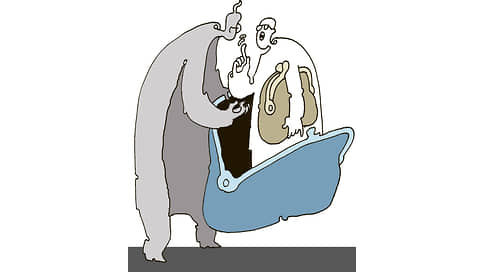The Central Bank established for banks to relieve retail lending

The Central Bank has developed for banks the criteria for obtaining messages when establishing a “cooling period” in retail lending. In particular, credit organizations should not have orders of the Central Bank for a wide range of cases related to fraudulent operations. Such banks will be able to issue loans for increased amounts and with a reduced waiting deadline whether the potential borrower will refuse the loan, because he was deceived by scammers. According to experts, banks will want to use the proposed mechanism, but few will be able to get the softening of the conditions.
The Bank of Russia has developed for banks the criteria for evaluating the effectiveness of the fight against the execution of consumer loans “without the voluntary consent of the client or with the consent received under the influence of fraud or in abuse of trust” to mitigate the conditions of the “cooling period”. This follows from the project of an indication of the regulator published on May 29.
According to the document, credit organizations will be able to submit to the Central Bank a request to increase the limit amounts of consumer loan or lending limit, as well as to reduce the transfer of funds to the borrower compared with the conditions established for the “cooling period”. In addition, banks will be able to ask the Central Bank about the implementation of lending without direct compliance with the requirements of Part 9 of Art. 7 of the Law “On Consumer Credit …”, if the achievement of its goals (prevention of fraud) is ensured by its own methods and regulated Antiphrod procedures, explains Yuri Belikov, managing director of the expert RA.
From September 1, 2025, amendments to the Law “On Banks and Banking Activities” are entering into force, according to which temporary restrictions are introduced when issuing loans to citizens. So, the “cooling period” for amounts of 50-200 thousand rubles. It is installed in the amount of four hours, for amounts of over 200 thousand rubles – at least 48 hours. During the specified period, a citizen will be able, if necessary, contact a credit institution or law enforcement agencies with information about fraudulent actions (see “Kommersant” dated 23 December, 2024).
To receive messages within six months, the bank should not have no orders of the Central Bank on the elimination of violations on counteracting money transfer, the registration of consumers, entering cash to bank accounts using cards or ATMs, issuing cash in ATMs without the consent of the client, as well as cases of repeated registration of consumer cores for two quarters. “If the organization of the above procedures in the bank has no complaints, then, probably, there will be no additional non -obvious reasons not to satisfy his petition,” says Mr. Belikov.
According to experts, most banks will compose such petitions and send the regulator. “Sitting the conditions of the“ cooling period ”will allow banks to get a competitive advantage over other players,” explains the MVA-Professor of the Digital Finance of the RANEPA, Aleksey Volukov. In particular, they will be able to provide loans to conscientious citizens faster.
However, not all banks will be able to fulfill the requirements of the Central Bank. And first of all, this applies to major players.
The regulator estimated that in 2024 1.19 million cases of fraudulent operations on the design of consumer credit occurred, and the volume of such operations increased by 74%, to 27.5 billion rubles. “For a large bank, issuing hundreds of thousands of loans per month, to achieve a“ double zero ”is statistically difficult and will require round-the-clock antifrod monitoring, biometrics and behavioral scoring,” said Inform Prisems. Small banks are not so attractive to scammers due to a small client base, “in connection with which they may have fewer loans without the consent of customers,” Mr. Volukov notes. As an alternative, it would be possible to establish a requirement according to which the number of such cases should not exceed the percentage of the loans issued for the reporting period, experts of “Inform Promotions” believe. The surveyed banks did not respond to Kommersant’s request.
For bank customers in mitigating the conditions of the “cooling period”, lawyers see risks. An increase in the marginal amounts of the consumer loan “can subsequently lead to an increase in zakrediti, reducing the terms for transferring funds to the borrower can reduce the possibilities for thinking about obtaining a loan, which contradicts the main purpose of introducing a“ cooling period ””, says Ilya Zharsky expert partner, VETA expert group.







